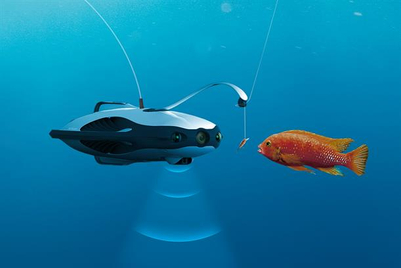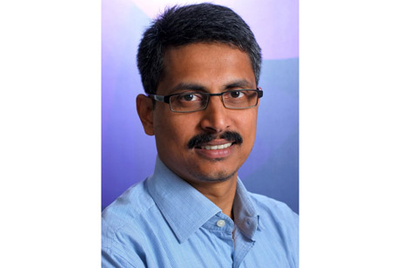
There is no doubt left in my mind, after CES 2014, that the recorded data about our lives is increasing beyond the dreams of even the most optimistic NSA spook. Whether it be the car we drive, the tennis racquet we play with, the dog we walk, the jewellery we display, the ski goggles we wear or the sleepsuit on our kids, all can track their respective host and share with the data-hungry cloud. The prospect for brands is potentially the ability to know an amazing amount about their customers and thus provide a contextually tailored product or service.
Cisco’s John Chambers talked about the Internet of Everything (IoE), the connecting of simply everything on the planet, as a US$19 trillion opportunity in new revenue and savings in both public and private arenas. Intel introduced a computer the size of an SD card called Edison and launched a developer competition to kickstart its foray into this market. Home-automation leader Belkin offered a service to help manufacturers connect their gadgets through Wemo Partnerships. At almost every turn companies were throwing tech at problems they weren’t actually sure existed.
Connecting the devices we wear on our body is clearly attracting a lot of investment. For example the connected-health zone at CES has doubled in size for the last three years, with the key area of growth being wellness wearables. Standout devices for me included:
- Ibitz kids trackers: The company has recently partnered with Disney’s 200 million strong gaming world Club Penguin to encourage activity in children.
- June by netamo: The Sunlight exposure jewel links with your phone to give you alerts on sun exposure and UV intensity.
- Withings Aura: A sleep monitor that wakes you with scientifically validated light therapy to encourage great sleep.
Separately from the connected-health section, at the Sony booth they were demonstrating a proof-of-concept tracker for tennis racquets, as well as a wearable for your wrist called Core. Of the other big brands, LG also announced a tracking smartwatch.
As the available data around our lives increases, the ability to mass personalise products is amplified. With each datapoint collected about each daily choice we make, it gives some brand or other the ability to power their suggestion engines. Large brands have to keep on top of this trend as the growing artisan and maker communities are already addressing niche and bespoke, and are looking for ways to scale to meet demand. As a collective they are competing with established brands as they have access to global markets through resale sites such as Etsy.com. This site facilitated more than US$1 billion in sales even before the holiday sales season in 2013.
Considering how to scale the production of handmade products leads us to an area of the exhibition that showed an incredible increase in exhibitor investment: the 3D printing zone. Alongside the hobbyist’s favourite and PR rockstars Makerbot were their new owner and industry leaders Stratasys, as well as 3D Systems. This industry is actually decades old and constantly innovating. The biggest headline from this part of the show was the announcement of the release of food-safe printing with demo candies at the show.
The 4th era of the motor vehicle is upon us, according to Audi, as cars are now shipped with data contracts. From Audi Chairman Rupert Stadler’s CES keynote:
No matter who we ask, no matter where they live, people want to be connected. So if mobility used to be about connecting places and people, it is now about connecting the driver with the car, the car’s surroundings, the traffic infrastructure, and all of the other connected elements of their life.
|
In-vehicle entertainment streaming aside, vehicle-to-vehicle (V2V) communication is rapidly reaching a cross manufacturer standard, so cars will warn each other about road hazards and conditions. Even if you have never travelled a road before, your car will have access to all the millions of journeys taken recently by everyone else. If your car is connected in this way, the branded app on the car will be able to route you automatically to the cheapest vendor of replacement parts before they wear out. One wonders the place of “advertising” in a world where gadgets can predict their own date of failure based on collective usage stats and order a replacement in advance.
Analysis of all this data could reveal some amazing things about our lives. Some data you may be happy sharing with brands in exchange for better products or services. Much though, you would prefer to stay private. At the McCann Truth about Privacy presentation, we heard from Julie Brill, commissioner of the US Federal Trade Commission about how they are looking very seriously at protecting consumers from unscrupulous data brokers and any organization looking to use personal data inappropriately and without appropriate care.
It is clear, if you are a brand manager or an agency leader and you are not investigating how data analytics can help you, then you are planning your own demise.



.jpg&h=334&w=500&q=100&v=20250320&c=1)

.jpg&h=334&w=500&q=100&v=20250320&c=1)
.jpg&h=334&w=500&q=100&v=20250320&c=1)

.jpg&h=334&w=500&q=100&v=20250320&c=1)










.jpg&h=268&w=401&q=100&v=20250320&c=1)
.jpg&h=268&w=401&q=100&v=20250320&c=1)
